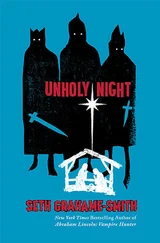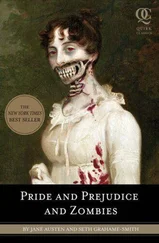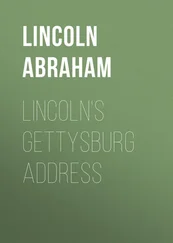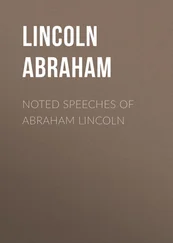I recall seeing a horse cart pass, filled with Negroes. There were several. All women, and of varying age. They were… shackled at the wrist and chained together on the cart bed, without so much as a handful of loose hay to comfort the bumps of the road, or a blanket to relieve them from the winter air. The drivers, naturally, sat on the cushioned bench in front, each of them wrapped in wool. My eyes met those of the youngest Negro girl, who was close in age to myself. Perhaps five or six. I admit that I could not look at her more than a moment before turning away—such was the sorrow of her countenance.
As a Baptist, Thomas Lincoln had been raised to believe that slavery was a sin. It was one of the few lasting contributions he would make to his son’s character.
Knob Creek became a place where weary travelers on the Old Cumberland Trail could spend the night. Sarah would make up a bed for each guest in one of the outbuildings (the farm consisted of a cabin, a storage shed, and a barn), and Nancy would serve a hot meal at sundown. The Lincolns never asked their overnight guests for payment, though most made contributions, either in money or, more often, in goods such as grain, sugar, and tobacco. After supper, the women would retire, and the men would pass the evening sipping whiskey and puffing pipes. Abe would lie awake in his bed in the loft above, listening to his father entertain their guests with a seemingly limitless reserve of stories, thrilling tales of the early settlers and the Revolutionary War, humorous anecdotes and allegories, and true (or partly true) stories from his own wandering days.
Father may have been wanting in some things, but here he was masterful. Night upon night, I marveled at his power to hold listeners in rapt attention. He could tell a story with such detail, such flourish, that afterwards a man would swear that it had been his own memory, and not a tale at all. I would… fight off sleep till well past midnight, trying to remember every word, and trying to fathom a way to tell the same story to my young friends in a manner they would understand.
Like his father, Abe had a natural gift for storytelling and would grow to master the art. His ability to communicate—to boil complex ideas down to simple, colorful parables—would be a powerful asset in later political life.
Travelers were expected to relay any news from the outside world. Most simply retold stories from the newspapers of Louisville or Nashville, or repeated gossip picked up along the road. “It was common to hear of the same drunk falling into the same ditch three times in a week, in three different voices.” Every so often, however, a traveler would arrive bearing stories of a different sort. Abe recalled trembling beneath his covers one night as a French immigrant described the madness of Paris in the 1780s.
The people had taken to calling it la ville des morts, the Frenchman said. The City of Death. Every night brought new screams, and every morning, new pale, wide-eyed bodies in the streets, or bloated victims fished from the sewers, which often ran red. They were the remains of men, women, children. They were innocent victims with no common bonds beyond their poverty, and there was nary a person in France who had any doubt as to the identity of their murderers. “It was les vampires!” he said. “We had seen them with our own eyes!” Vampires, he told us, had been the “quiet curse” of Paris for centuries. But now, with so much famine and disease… so many poor beggars packed tightly in the slums… they were growing ever bolder. Ever hungrier. “Yet Louis did nothing! He and his aristocrates pompeux did nothing while vampires feasted upon his starving subjects, until finally his subjects would tolerate no more.”
Naturally, the Frenchman’s story, like all vampire stories, was considered folly, a myth concocted to frighten children. Still, Abe found them endlessly fascinating. He spent hours dreaming up his own tales of “winged immortals,” their “white fangs stained with blood, waiting in the darkness for the next unfortunate soul to wander their way.” He thrilled in testing their effectiveness on his sister, who “frightened easier than a field mouse, but thought it was good fun nonetheless.”
Thomas, on the other hand, was quick to scold Abe if he caught him spinning vampire yarns. Such stories were “childish nonsense” and had no place in polite conversation.
III
In 1816, another land dispute brought an end to the Lincolns’ time at Knob Creek. Ownership was a murky concept on the frontier, with multiple deeds often issued for the same property, and records mysteriously appearing or disappearing (depending on the nature of the bribe). Rather than face a costly legal battle, Thomas uprooted his family for the second time in Abe’s seven years, leading them west across the Ohio River and into Indiana. There, having apparently learned nothing from his previous land disputes, Thomas simply helped himself to a 160-acre plot of land in a heavily wooded settlement known as Little Pigeon Creek, near present-day Gentryville. The decision to leave Kentucky was both a practical and moral one. Practical, because there was plenty of cheap land to be had after the Indians were driven out following the War of 1812. Moral, because Thomas was an abolitionist, and Indiana was a free territory.
Compared to the farms at Sinking Springs and Knob Creek, the Lincolns’ new homestead was truly untamed—surrounded by an “unbroken wilderness,” where bears and bobcats roamed without boundaries or fear of man. Their first months were spent in a hastily constructed lean-to barely big enough for four people and open to the elements on one side. The biting cold of that first Indiana winter must have been unbearable.
Little Pigeon Creek was remote, but hardly lonely. There were eight or nine families less than a mile from the Lincolns’ home, many of them fellow Kentuckians. “More than a dozen boys my age lived within a short walk. We… formed a militia, and waged a campaign of mischief that is still spoken of in southern Indiana.” But the growing community was more than a repository for boisterous children. As was often the case on the frontier, families pooled their resources and talents to increase their chances of survival, planting and harvesting crops together, trading goods and labor, and lending a hand in times of illness or hardship. Considered the best carpenter in the area, Thomas rarely wanted for work. One of his first contributions was a tiny one-room schoolhouse, which Abe would attend infrequently in the coming years. During his first presidential campaign, he would write a brief autobiography, in which he admitted that the sum of his schooling amounted to “less than a year altogether.” Even so, it was obvious to at least one of those early teachers, Azel Waters Dorsey, that Abraham Lincoln was “an exceptional child.”
Following Abe’s fateful turkey encounter, he announced that he would no longer hunt game. As punishment, Thomas put him to work splitting wood—thinking the physical toll would force him to reconsider. Though Abe could barely lift the blade higher than his waist, he spent hour after hour clumsily splitting and stacking logs.
It got to be that I could hardly tell where the ax stopped and my arm began. After a while, the handle would simply slip through my fingers, and my arms would hang at my sides like a pair of curtains. If Father saw me resting thus, he would cuss up a cyclone, take the ax from the ground, and split a dozen logs in a minute to shame me into working again. I kept at it, though, and with each passing day, my arms grew a little stronger.

Читать дальше













